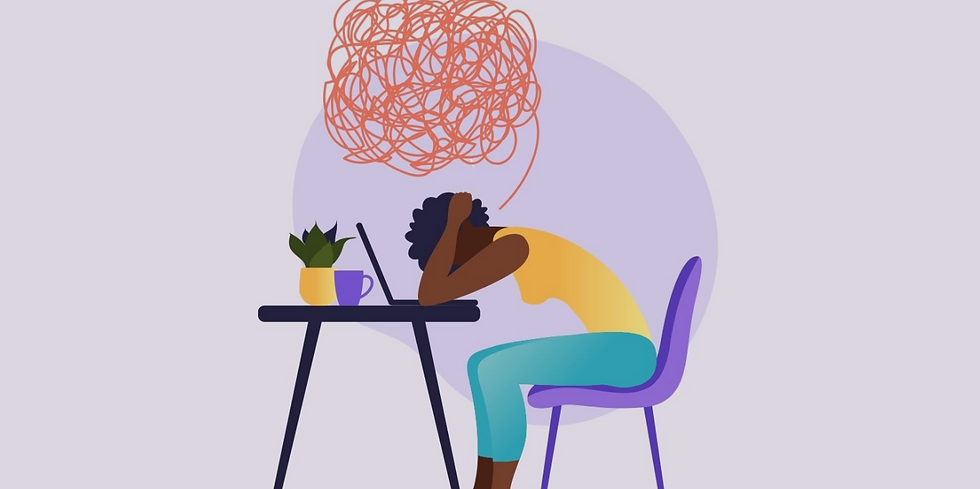Why It’s So Hard to Rest When You’re Burnt Out
- Catharsis Psychology and Psychotherapy

- 5 days ago
- 2 min read

Rest sounds simple. You put your phone down. Take a break. Slow down. Easy, right?
Except when you’re burnt out, rest often feels impossible, even (and especially!) when you desperately need it.
Many people who reach out for therapy in Ottawa or online counselling across Ontario say things like: “I finally have time off but I can’t sit still.”“I’m exhausted but I feel guilty resting.”“I know I need a break, but my brain won’t let me stop.”
If that sounds familiar, you’re not alone. Burnout affects thousands of people across Ontario each year, and it affects far more than your energy: it changes the way your nervous system and mind respond to rest.
Let’s talk about why this happens, and why it makes perfect sense from a mental health perspective.
1. Your brain has been in survival mode
When you’ve been under long-term stress, your nervous system adapts to help you push through. You stay alert. You stay productive. You stay “on.”
This is something we see often in burnout recovery therapy with clients in Ottawa: your brain doesn’t simply switch gears because your schedule finally lightens up.
To your nervous system, slowing down can feel unfamiliar or unsafe. It’s like your body thinks, “If I stop now, everything will collapse.”
2. Rest brings up emotions you’ve been avoiding
Sometimes rest isn’t hard because you can’t stop working. It’s hard because rest creates space, and in that space, feelings you’ve pushed aside finally rise to the surface. Silence can feel loud. Stillness can feel overwhelming. Your body slows down and your emotions catch up.
Many people seeking mental health support in Ontario tell us they feel more emotional during downtime. That’s your system processing what it hasn’t had time to feel.
3. Burnout distorts your sense of worth
In a culture that rewards overworking, many people grow up tying their value to productivity. So when your body wants rest, your mind interprets it as:
“I shouldn’t be resting.”“I haven’t done enough today.”“I’ll fall behind.”
In therapy, we help clients gently challenge this belief. Rest is not something you earn. It’s something you deserve simply because you’re human.
4. Your nervous system can’t rest without safety
A regulated nervous system is what makes true rest possible.
You can know you need a break (your brain may say “please sit down”) but if your nervous system still feels alert, overwhelmed, or unsafe, rest won’t feel like an option.
This is a core part of psychotherapy for burnout: helping your body relearn how to downshift, soften, and feel safe enough to pause.
If you’re burnt out, you deserve care.
Burnout is a real mental health experience that impacts your emotions, your body, and the way you see yourself. You’re not weak for struggling. You’re not failing for needing rest.
If you’ve been feeling stuck in burnout, unable to slow down, or unsure how to rebuild your energy, therapy can help. Our team of Ottawa therapists supports individuals across Ontario through both in-person psychotherapy and virtual counselling, offering a compassionate space to reconnect with your body and find your way back to balance.
You don’t have to push through this alone.Whenever you’re ready, we’re here to support your healing. 💜
_edited_edited.png)



Comments